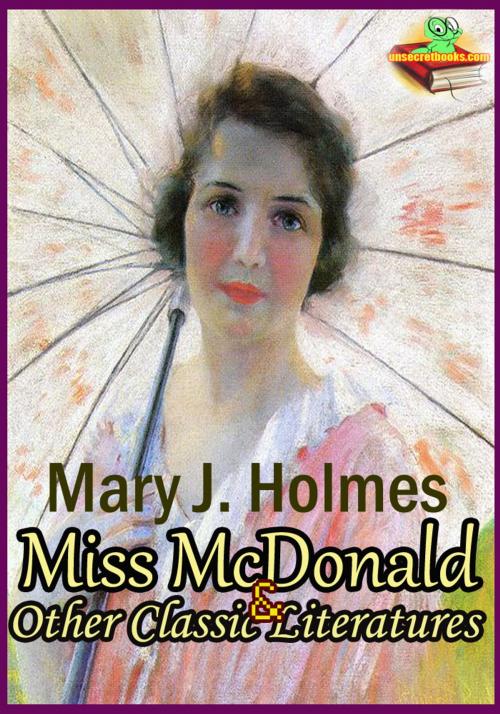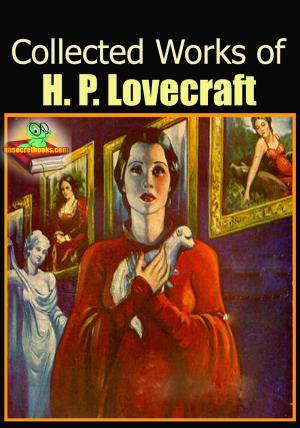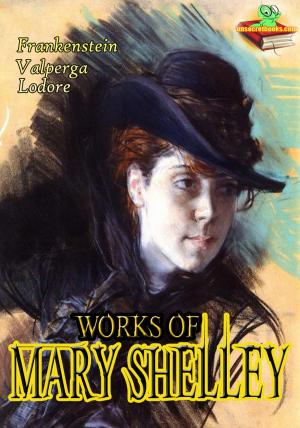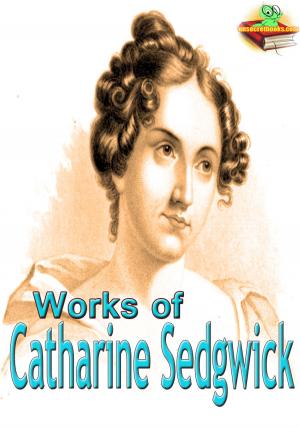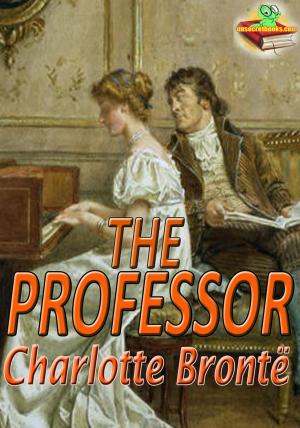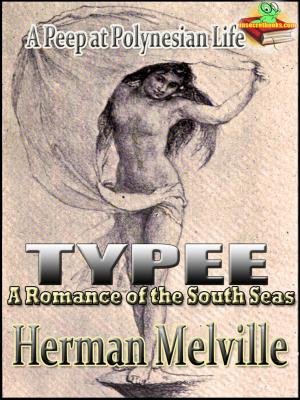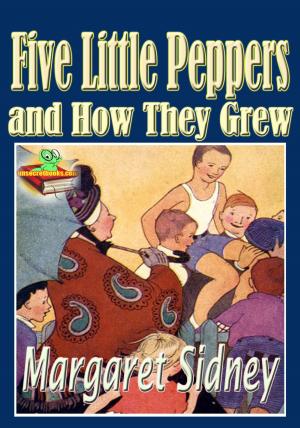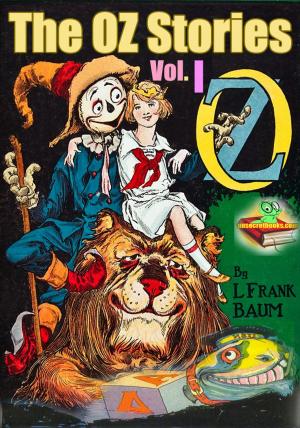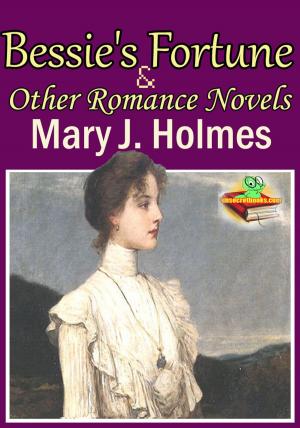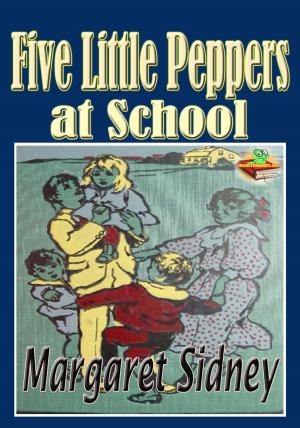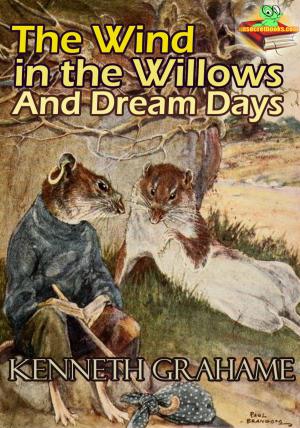Miss McDonald: Family Pride: The English Orphans: The Rector of St. Mark's
( 4 Classic Literatures )
Romance, Romantic Suspense, Fiction & Literature, Literary| Author: | Mary J. Holmes | ISBN: | 1230000103924 |
| Publisher: | Unsecretbooks.com | Publication: | February 1, 2013 |
| Imprint: | Language: | English |
| Author: | Mary J. Holmes |
| ISBN: | 1230000103924 |
| Publisher: | Unsecretbooks.com |
| Publication: | February 1, 2013 |
| Imprint: | |
| Language: | English |
"Mrs. Holmes is a peculiarly pleasant and fascinating writer. Her books are always entertaining, and she has the rare faculty of enlisting the sympathy and affections of her readers, and of holding their attention to her pages with deep and absorbing interest."
G.W. Dillingham Co., Publishers, NEW YORK.
Mary Jane Holmes was a bestselling and prolific American author who published 39 popular novels, as well as short stories. Her first novel sold 250,000 copies; and she had total sales of 2 million books in her lifetime, second only to Harriet Beecher Stowe.
Portraying domestic life in small town and rural settings, she examined gender relationships, as well as those of class and race. She also dealt with slavery and the American Civil War, with a strong sense of moral justice. Since the late 20th century, she has received fresh recognition and reappraisal, although her popular work was excluded from most 19th-century literary histories compiled by men.
This book is contained 4 Classic Literatures.
“Miss McDonald”
I have been out among my flowers all the morning, digging, weeding, and transplanting, and then stopping a little to rest. Such perfect successes as my roses are this year, while my white lilies are the wonder of the town, and yet my heart was not with them to-day, and it was nothing to me that those fine people staying at the Towers came into the grounds while I was at work, "just to see and admire," they said, adding that there was no place like Elmwood in all the town of Cuylerville. I know that, and Guy and I have been so happy here, and I loved him so much, and never dreamed what was in store for me until it came so suddenly and seemed like a heavy blow.
Why did he want to get married, when he has lived to be thirty years old, without a care of any kind, and with money enough to allow him to indulge his taste for books, and pictures, and travel, and is respected by everybody, looked up to as the first man in town, and petted and cared for by me as few brothers have ever been petted and cared for; why, I say, did he want a change, and, if he must be married, why need he take a child of sixteen, whom he has only known since Christmas, and whose sole recommendation, so far as I can learn, is her pretty face?
“Family Pride”
Morris had returned from Spencer, and in his dressing-gown and slippers was sitting by the window of his cheerful library, looking out upon the purple sunshine flooding the western sky, and thinking of the little girl coming so rapidly up the grassy lane in the rear of the house. He was going over to see her by and by, he said, and he pictured to himself how she must look by this time, hoping that he should not find her greatly changed, for Morris Grant's memories were very precious of the playful child who, in that very room where he was sitting, used to tease and worry him so much with her lessons poorly learned, and the never-ending jokes played off upon her teacher. He had thought of her so often when across the sea, and, knowing her love of the beautiful, he had never looked upon a painting or scene of rare beauty that he did not wish her by his side sharing in the pleasure. He had brought her from that far-off land many little trophies which he thought she would prize, and which he was going to take with him when he went to the farmhouse. He never dreamed of her coming there to-night. She would, of course, wait for him. Helen had, even when it was more her place to call upon him first. How, then, was he amazed when, just as the sun was going down and he was watching its last rays lingering on the brow of the hill across the pond, the library door was opened wide and the room seemed suddenly filled with life and joy, as a graceful figure, with reddish, golden hair, bounded across the floor, and winding its arms around his neck gave him the hearty kiss which Katy had in her mind when she declined Aunt Betsy's favorite vegetable.
“The English Orphans”
Mary Howard, the child thus introduced to our readers, was certainly not very handsome. Her features, though tolerably regular, were small and thin, her complexion sallow, and her eyes, though bright and expressive, seemed too large for her face. She had naturally a fine set of teeth, but their beauty was impaired by two larger ones, which, on each side of her mouth, grew directly over the others, giving to the lower portion of her face a peculiar and rather disagreeable expression. She had frequently been told that she was homely, and often when alone had wept, and wondered why she, too, was not handsome like her sister Ella, on whose cheek the softest rose was blooming, while her rich brown hair fell in wavy masses about her white neck and shoulders. But if Ella was more beautiful than Mary, there was far less in her character to admire. She knew that she was pretty, and this made her proud and selfish, expecting attention from all, and growing sullen and angry if it was withheld. Mrs. Howard, the mother of these children, had incurred the displeasure of her father, a wealthy Englishman, by marrying her music teacher, whose dark eyes had played the mischief with her heart, while his fingers played its accompaniment on the guitar. Humbly at her father's feet she had knelt and sued for pardon, but the old man was inexorable, and turned her from his house, cursing the fate which had now deprived him, as it were, of his only remaining daughter. Late in life he had married a youthful widow who after the lapse of a few years died, leaving three little girls, Sarah, Ella, and Jane, two of them his own, and one a step-daughter and a child of his wife's first marriage.
“The Rector of St. Mark's”
The Sunday sermon was finished, and the young rector of St. Mark's turned gladly from his study-table to the pleasant south window where the June roses were peeping in, and abandoned himself for a few moments to the feeling of relief he always experienced when his week's work was done. To say that no secular thoughts had intruded themselves upon the rector's mind, as he planned and wrote that sermon, would not be true; for, though morbidly conscientious on many points and earnestly striving to be a faithful shepherd of the souls committed to his care, Arthur Leighton possessed the natural desire that those who listened to him should not only think well of what he taught but also of the form in which the teaching was presented. When he became a clergyman he did not cease to be a man, with all a man's capacity to love and to be loved, and so, though he fought and prayed against it, he had seldom brought a sermon to the people of St. Mark's in which there was not a thought of Anna Ruthven's soft, brown eyes, and the way they would look at him across the heads of the congregation. Anna led the village choir, and the rector was painfully conscious that far too much of earth was mingled with his devotional feelings during the moments when, the singing over, he walked from his armchair to the pulpit and heard the rustle of the crimson curtain in the organ loft as it was drawn back, disclosing to view the five heads of which Anna's was the center. It was very wrong, he knew, and to-day he had prayed earnestly for pardon, when, after choosing his text, "Simon, Simon, lovest thou me?" instead of plunging at once into his subject, he had, without a thought of what he was doing, idly written upon a scrap of paper lying near, "Anna, Anna, lovest thou me, more than these?" the these, referring to the wealthy Thornton Hastings, his old classmate in college, who was going to Saratoga this very summer, for the purpose of meeting Anna Ruthven and deciding if she would do to become Mrs. Thornton Hastings, and mistress of the house on Madison Square. With a bitter groan at the enormity of his sin, and a fervent prayer for forgiveness, the rector had torn the slips of paper in shreds and given himself so completely to his work that his sermon was done a full hour earlier than usual, and he was free to indulge in reveries of Anna for as long a time as he pleased.
"Mrs. Holmes is a peculiarly pleasant and fascinating writer. Her books are always entertaining, and she has the rare faculty of enlisting the sympathy and affections of her readers, and of holding their attention to her pages with deep and absorbing interest."
G.W. Dillingham Co., Publishers, NEW YORK.
Mary Jane Holmes was a bestselling and prolific American author who published 39 popular novels, as well as short stories. Her first novel sold 250,000 copies; and she had total sales of 2 million books in her lifetime, second only to Harriet Beecher Stowe.
Portraying domestic life in small town and rural settings, she examined gender relationships, as well as those of class and race. She also dealt with slavery and the American Civil War, with a strong sense of moral justice. Since the late 20th century, she has received fresh recognition and reappraisal, although her popular work was excluded from most 19th-century literary histories compiled by men.
This book is contained 4 Classic Literatures.
“Miss McDonald”
I have been out among my flowers all the morning, digging, weeding, and transplanting, and then stopping a little to rest. Such perfect successes as my roses are this year, while my white lilies are the wonder of the town, and yet my heart was not with them to-day, and it was nothing to me that those fine people staying at the Towers came into the grounds while I was at work, "just to see and admire," they said, adding that there was no place like Elmwood in all the town of Cuylerville. I know that, and Guy and I have been so happy here, and I loved him so much, and never dreamed what was in store for me until it came so suddenly and seemed like a heavy blow.
Why did he want to get married, when he has lived to be thirty years old, without a care of any kind, and with money enough to allow him to indulge his taste for books, and pictures, and travel, and is respected by everybody, looked up to as the first man in town, and petted and cared for by me as few brothers have ever been petted and cared for; why, I say, did he want a change, and, if he must be married, why need he take a child of sixteen, whom he has only known since Christmas, and whose sole recommendation, so far as I can learn, is her pretty face?
“Family Pride”
Morris had returned from Spencer, and in his dressing-gown and slippers was sitting by the window of his cheerful library, looking out upon the purple sunshine flooding the western sky, and thinking of the little girl coming so rapidly up the grassy lane in the rear of the house. He was going over to see her by and by, he said, and he pictured to himself how she must look by this time, hoping that he should not find her greatly changed, for Morris Grant's memories were very precious of the playful child who, in that very room where he was sitting, used to tease and worry him so much with her lessons poorly learned, and the never-ending jokes played off upon her teacher. He had thought of her so often when across the sea, and, knowing her love of the beautiful, he had never looked upon a painting or scene of rare beauty that he did not wish her by his side sharing in the pleasure. He had brought her from that far-off land many little trophies which he thought she would prize, and which he was going to take with him when he went to the farmhouse. He never dreamed of her coming there to-night. She would, of course, wait for him. Helen had, even when it was more her place to call upon him first. How, then, was he amazed when, just as the sun was going down and he was watching its last rays lingering on the brow of the hill across the pond, the library door was opened wide and the room seemed suddenly filled with life and joy, as a graceful figure, with reddish, golden hair, bounded across the floor, and winding its arms around his neck gave him the hearty kiss which Katy had in her mind when she declined Aunt Betsy's favorite vegetable.
“The English Orphans”
Mary Howard, the child thus introduced to our readers, was certainly not very handsome. Her features, though tolerably regular, were small and thin, her complexion sallow, and her eyes, though bright and expressive, seemed too large for her face. She had naturally a fine set of teeth, but their beauty was impaired by two larger ones, which, on each side of her mouth, grew directly over the others, giving to the lower portion of her face a peculiar and rather disagreeable expression. She had frequently been told that she was homely, and often when alone had wept, and wondered why she, too, was not handsome like her sister Ella, on whose cheek the softest rose was blooming, while her rich brown hair fell in wavy masses about her white neck and shoulders. But if Ella was more beautiful than Mary, there was far less in her character to admire. She knew that she was pretty, and this made her proud and selfish, expecting attention from all, and growing sullen and angry if it was withheld. Mrs. Howard, the mother of these children, had incurred the displeasure of her father, a wealthy Englishman, by marrying her music teacher, whose dark eyes had played the mischief with her heart, while his fingers played its accompaniment on the guitar. Humbly at her father's feet she had knelt and sued for pardon, but the old man was inexorable, and turned her from his house, cursing the fate which had now deprived him, as it were, of his only remaining daughter. Late in life he had married a youthful widow who after the lapse of a few years died, leaving three little girls, Sarah, Ella, and Jane, two of them his own, and one a step-daughter and a child of his wife's first marriage.
“The Rector of St. Mark's”
The Sunday sermon was finished, and the young rector of St. Mark's turned gladly from his study-table to the pleasant south window where the June roses were peeping in, and abandoned himself for a few moments to the feeling of relief he always experienced when his week's work was done. To say that no secular thoughts had intruded themselves upon the rector's mind, as he planned and wrote that sermon, would not be true; for, though morbidly conscientious on many points and earnestly striving to be a faithful shepherd of the souls committed to his care, Arthur Leighton possessed the natural desire that those who listened to him should not only think well of what he taught but also of the form in which the teaching was presented. When he became a clergyman he did not cease to be a man, with all a man's capacity to love and to be loved, and so, though he fought and prayed against it, he had seldom brought a sermon to the people of St. Mark's in which there was not a thought of Anna Ruthven's soft, brown eyes, and the way they would look at him across the heads of the congregation. Anna led the village choir, and the rector was painfully conscious that far too much of earth was mingled with his devotional feelings during the moments when, the singing over, he walked from his armchair to the pulpit and heard the rustle of the crimson curtain in the organ loft as it was drawn back, disclosing to view the five heads of which Anna's was the center. It was very wrong, he knew, and to-day he had prayed earnestly for pardon, when, after choosing his text, "Simon, Simon, lovest thou me?" instead of plunging at once into his subject, he had, without a thought of what he was doing, idly written upon a scrap of paper lying near, "Anna, Anna, lovest thou me, more than these?" the these, referring to the wealthy Thornton Hastings, his old classmate in college, who was going to Saratoga this very summer, for the purpose of meeting Anna Ruthven and deciding if she would do to become Mrs. Thornton Hastings, and mistress of the house on Madison Square. With a bitter groan at the enormity of his sin, and a fervent prayer for forgiveness, the rector had torn the slips of paper in shreds and given himself so completely to his work that his sermon was done a full hour earlier than usual, and he was free to indulge in reveries of Anna for as long a time as he pleased.
